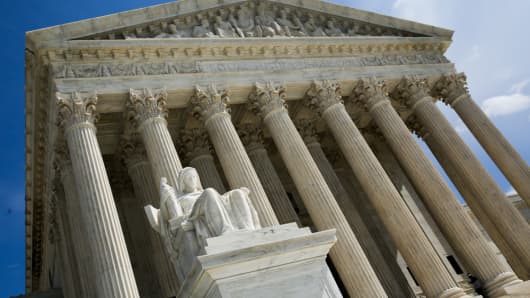The founders of our nation gave each branch a purpose: the legislative writes the laws; the executive carries out the laws, and the judicial system interprets the laws. But a case before the U.S. Supreme Court risks having nine unelected judges act like legislators, creating new tax burdens on online businesses.
The internet has enabled the creation of countless new businesses. Some even growing to become established household names. The internet empowers entrepreneurs to expand beyond their local communities to reach customers around the world.
Today, when seeking collection of sales taxes, states can demand sales tax only from those retailers that have a physical presence in their state. This physical presence standard protects businesses from foreign tax collectors, echoing the cry of our nation's founders: "No taxation without representation!"
But, the future of this common-sense rule, and the future of small online businesses are now in the hands of nine U.S. Supreme Court justices, who will hear the case on Tuesday.
In the case of South Dakota vs. Wayfair, the Supreme Court will determine the constitutionality of a South Dakota law imposing sales tax burdens on out-of-state businesses with no physical presence in the state.


